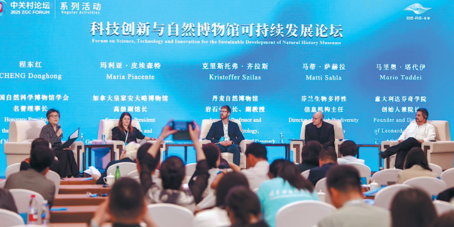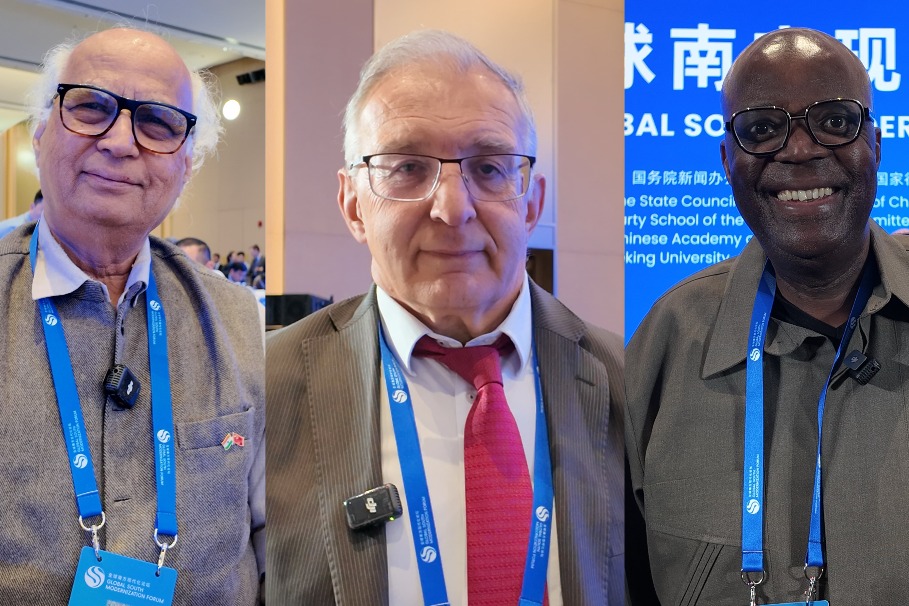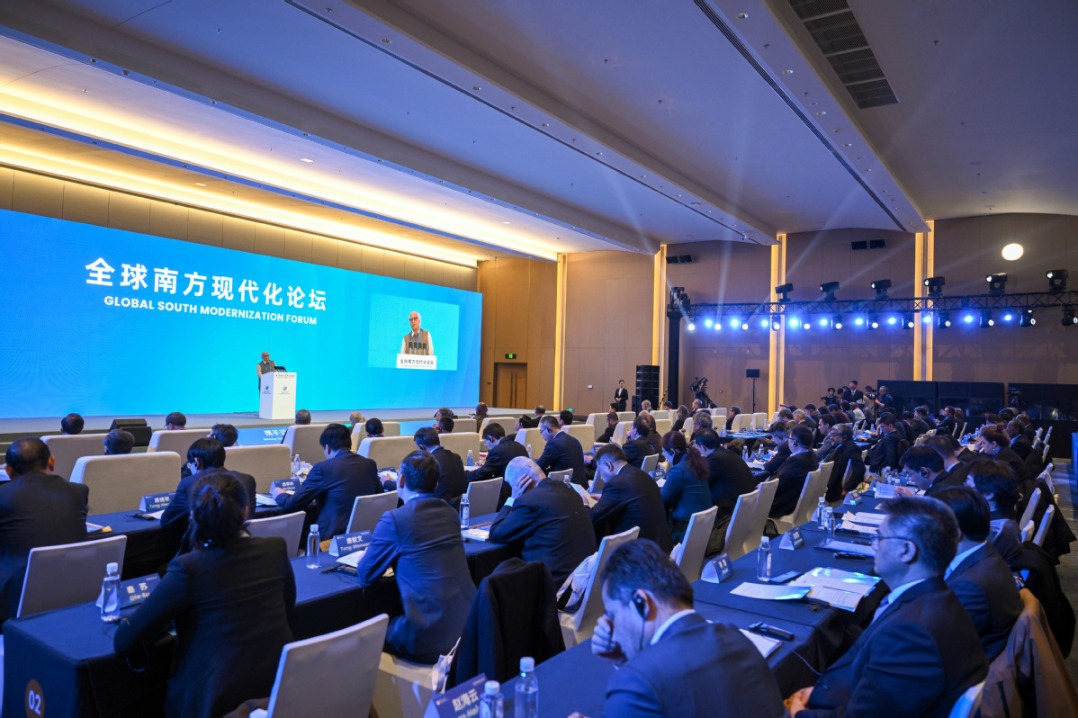Reimagining museums beyond the walls for tomorrow

Amid growing biodiversity loss, climate challenges, and resource scarcity, experts from the global natural history museum community emphasized the urgent need for museums to evolve beyond traditional roles at a recent forum in Beijing.
At the Forum on Science, Technology and Innovation for the Sustainable Development of Natural Science Museums held on June 5 and 6, Meng Qingjin, chief scientist at Natural History Museum of China, outlined the evolution and future trends of museum exhibitions, including breaking down physical boundaries, integrating services and enhancing participation.
As a regular activity of the 2025 Zhongguancun Forum, the event is hosted by the Beijing Academy of Science and Technology and the Chinese Association of Natural Science Museums, and organized by the Natural History Museum of China. It gathered museum experts from home and abroad to discuss how the institution, its related theories, functions and management evolve with time.
"Museums must build bridges between nature and culture, between the local and global, propagating the ecological civilization concept of respecting, adapting to, and protecting nature," Meng says, adding that humans' role and responsibility in the biodiversity crisis should be highlighted.
He says that these features will be considered in the planning and building of the Natural History Museum of China's new pavilion, which started construction last year.
Covering an exhibition area of 68,000 square meters, the new venue, located along the south of Beijing's Central Axis, is expected to receive 5 to 7 million visitors annually.
Zhang Yuguang, deputy director of the Natural History Museum of China, details the museum's forward-looking plans, and says it will be heavily influenced by technological integration and best international practices gleaned from the forum.
"Our new museum will have no walls," Zhang says, envisioning it as a "public, open science platform integrated into the community", directly meeting public needs.
Inspired by the speech of Johannes Vogel, director of the Museum of Natural History in Berlin, during the event, Zhang is excited over the "open storage" concept, which means where collection areas behind transparent glass become exhibits themselves, showcasing specimens and ongoing work.
"Natural science is inherently international," Zhang says, adding that the museum, renamed and inaugurated as the new facility on June 5, 2023, has started to plan a special exhibition in collaboration with international partners to mark its third anniversary. The institution was formerly known as the Beijing Museum of Natural History.
According to Zhang, the museum's collection is projected to surpass 460,000 specimens this year, with annual additions of 20,000 to 30,000 items. With a history of more than 70 years, the new facility will actively play an essential role in scientific research, develop diversified learning programs and deepen international communication, Zhang adds.
With this year's theme of "Natural History Museums and Science Communication", the forum fosters international dialogue, case studies, and cross-sector collaboration, aiming to generate fresh models for global museum sustainability.
Guo Zhe, director of the China Science and Technology Museum, says the new mission for institutions in this technological era is that "museums must break down their physical walls and integrate more openly into the atmosphere of scientific innovation".
He cites his own institution's collaborations with universities and research institutes in exhibition design and educational programs, stressing that "the mission of museum professionals is to innovate and meet the demands of our times".
The forum consolidated its role as a crucial bridge for international cooperation. By facilitating the exchange of cutting-edge ideas and successful practices, it empowered natural history museums worldwide to collectively envision and build a more sustainable, technologically adept, and publicly engaging future, essential for fostering ecological awareness in the 21st century, according to Meng.

Today's Top News
- 15th National Games embodiment of high-quality development
- Lawmakers' thousands of proposals receive responses
- China warns Japan against interference
- Nation's euro bond sale shows investors' confidence
- No soft landing for Tokyo's hard line
- Commerce minister urges US to increase areas of cooperation






























